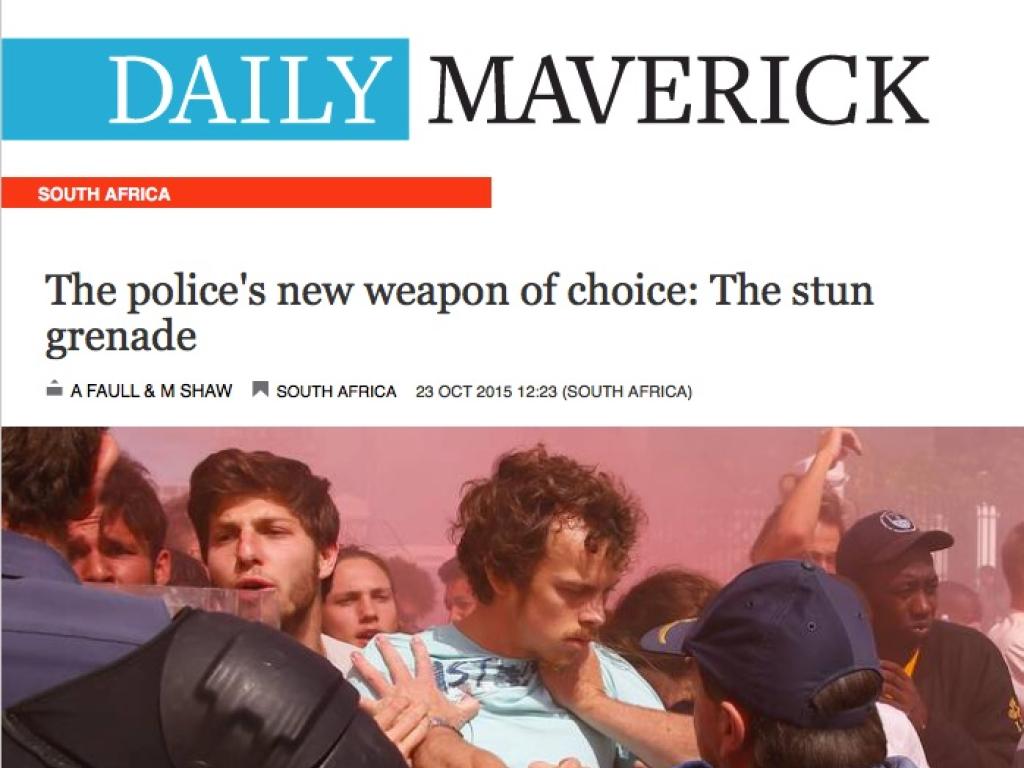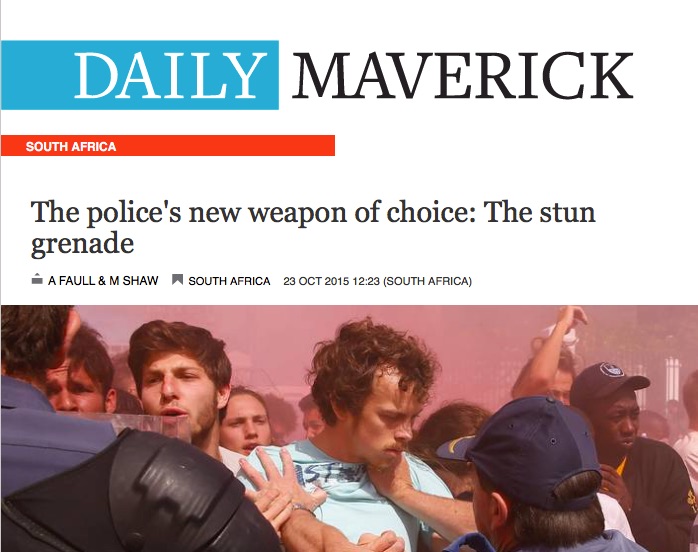The Police's New Weapon of Choice: The stun grenade

- Dr. Andrew Faull & Prof. Mark Shaw ask whether stun grenades are a suitable tool for managing public order in South Africa.
Contemporary popular culture, communicated through movies, video games and social media has ensured that many of us have heard the words ‘flashbang’ or ‘stun grenade’. They conjure images of helmeted SWAT teams storming buildings to apprehend bank robbers and rescue hostages. But what is less well known, and deserving of our attention, is that within some police agencies they have become central to the management of crowds in public space.
Stun grenades fall into a category known as ‘less than lethal’ weapons. As the name suggests, these are intended as substitutes for more obviously lethal weapons, such as hand guns. Other weapons and tools in this category are Tasers, water cannons and pepper spray, and like these weapons, their ‘less than lethal’ classification does not mean they are harmless. They have been known to maim or even kill when improperly or accidentally deployed.
#FeesMustFall protest turns violent, 21 October 2015
On Wednesday the 21st of October, a student taking part in the #FeesMustFall protest outside South Africa’s parliament was severely burnt on his feet and ankle, apparently by an exploding stun grenade tossed by police.
In the following article, Andrew Faull and Mark Shaw ask whether stun grenades are a suitable tool for managing public order in South Africa.

Read the official Daily Maverick Article
